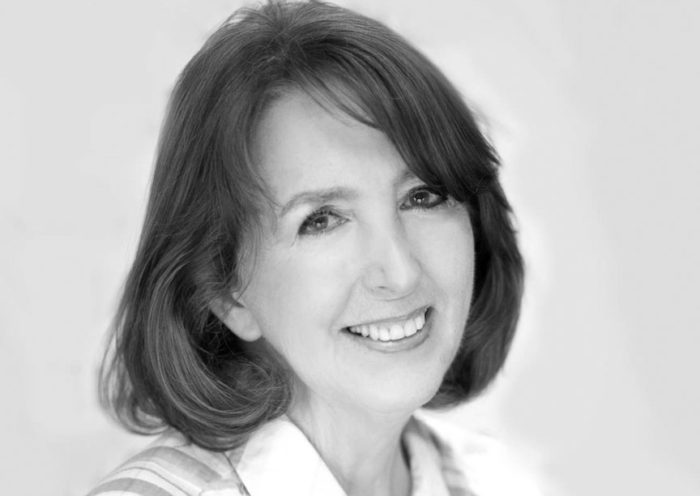Pauline Butcher Bird is a unique and remarkable historian. Not only does she write about life in Los Angeles during the wild and wonderful 1960s and 1970s, she actually lived it. Her fantastic book, Freak Out! My Life with Frank Zappa, is a personal account of her life when she lived with Frank Zappa and his family in their legendary Laurel Canyon home. The “Log Cabin” as it was known had become Rock ‘n’ Roll central in the spring/summer of 1968. Pauline, a British citizen, found herself mixed up in this wild life of big personalities—and was clever enough to write it all down as it happened. Her memoir of this time is one of the best books on life in the famous Canyon.
Pauline graciously agreed to an interview and let us know a little bit more about her life and work. Thank you Pauline!
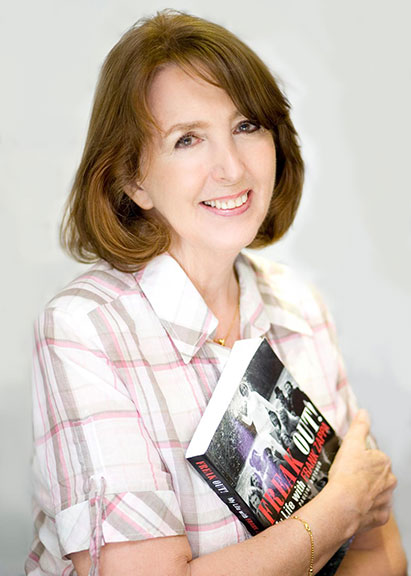
How long did it take you to write Freak Out! My Life with Frank Zappa? When did you first begin the book?
Freak Out! Started as a radio play. A producer was working with me but Germaine Greer got wind of it and made her own documentary on Frank Zappa (full of errors) and the BBC said they would not do two programs on Frank Zappa in one year, and mine was dropped. I was so mad, I decided to turn it into a memoir. I wrote to every suitable publisher in the Writers’ and Artists’ book saying I was writing this memoir about Frank Zappa and 12 wrote back and said send the chapters, so I knew I had a marketable product. Of course, I hadn’t written any at that time! But
The period your wrote about is from 1967-1971. The book was published in 2011. What was it like to relive all those memories some forty years later?
It would not have been possible without my diaries and more importantly, the letters I wrote to England which both my mother and my close friend kept. It took me nine months to type these out into chronological order and it was from these that the memories came back.
Why did you decide to write a book at that time in your life?
I have always wanted to be a writer, but my life was taken up with raising our son. I was a very hands-on mother. I don’t know how female writers who have children manage it. But when our only child, Damian, left for university, and my husband was constantly abroad with his work, I knew I had no excuses left. This would be 2001. I spent six years sending off play after play to the BBC until a producer told me, ‘Write something that no one else can write,’ and I thought my Zappa experience is the only story that no one else could write. So, I wrote it as a radio play as I state in my answer to your first question.
So, six years after struggling to get a play on the radio, and Germaine Greer intervened, I began the memoir, and it took four years to finish it. Therefore, from the moment I decided to write, after Damian went to university, and publication in 2011, it was ten years.
Your book is very well written, extremely engaging and highly detailed. I often felt like I was there with you. Did you keep a diary of this period in your life?
Absolutely. I have kept a diary all my life. But the letters were more informative and thank goodness my mother kept them in a shoebox for 40 years because I wrote them in great detail, some of them ten page long, as if I was writing a novel.
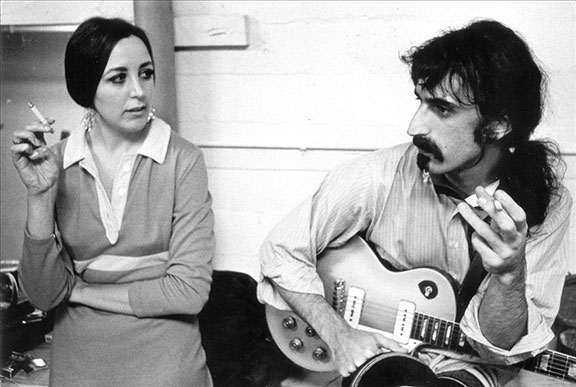
What do you remember most about living in the log cabin? Looking back, was it like being in another world?
It was. As you know, I wrote the memoir very much ‘in the moment’ and did not look back and make judgements from today’s perspective. Now I am able to do so.
Looking back, many questions are raised in my mind. For example, Frank and Gail were newly married with a young baby, just like millions of other young couples. So why did he choose to live in a huge rambling house in the middle of Laurel Canyon and have living with them eight others? And in the process, he ignored us all. Only once in the five months we lived at the log cabin did Frank join us in the kitchen to socialize. We had to tip-toe round him.
I remember feeling buffeted between Pamela Zarubica and Gail. I was out of my depth with those two and was never sure if they were friends or foe which gave me a constant feeling of unease and anxiety.
And of course, the man with the gun, a terrifying experience which I’m not sure if I adequately conveyed in the book.
On the other hand, I loved the experience, despite the house being such a wreck although as I describe, I did make my own room the jewel in the crown as it were.
Paradoxically, I loved the times when Frank was away, although I missed him and wrote letters to him when he was away telling him so. Which is why I think when he returned after two weeks away the first time, he knocked on my door and wished me good night. I remember that moment.
But when he was away, we had lots of fun in the house, especially later on, when no one bothered to visit any more, and it was just the ‘family’. We showed films and played silly games.
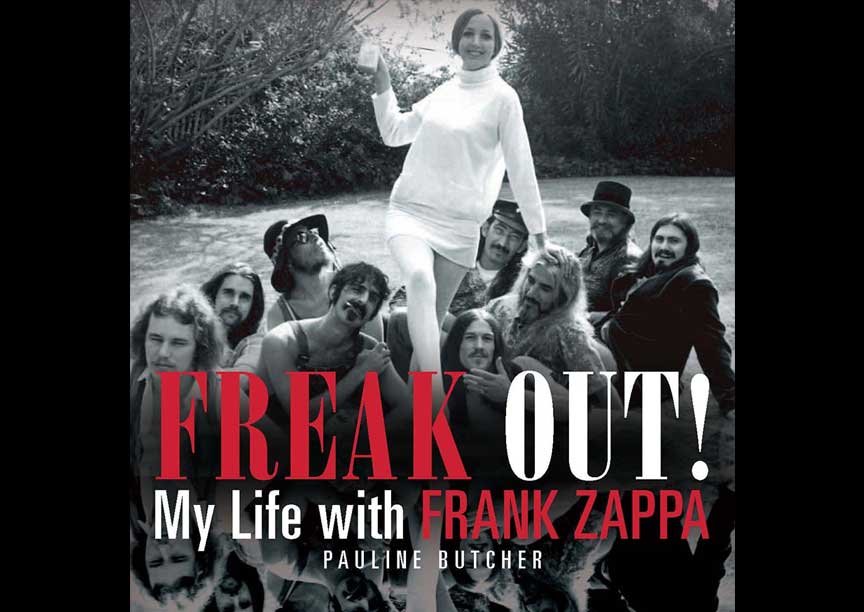
Talk about the writing process. How did you begin the book? Was it written chronologically? How long did it take to write a chapter?
I wrote the first chapters in Australia because we were travelling at that time. I still have them, and they are awful.
I wrote the chapters chronologically, following my letters and diary entries and as they appear in the book. Of course, the first part, in England, was done completely from memory, but the whole experience of meeting Frank Zappa in London was imprinted on my mind because it was so life-changing.
As were the two meetings in New York though they were more hazy because my sisters were very against any connection with Frank Zappa, his image of a drug-crazed hippy not helping!
I sent the first three chapters to my agent, Laura Susijn, and she wrote back and said, ‘Can you make it more literary?’ She was also concerned when she read more chapters that I was not conveying the charisma and dynamism of Frank Zappa that got to me personally. So I had to make those changes.
How do you write — at a computer, in a certain place, at a certain time? Describe your work space?
We were in Australia six weeks, and then on to Singapore. The book was written in Singapore. We had a huge mansion set in two acres of land with a pool outside under jungle trees. There I sat, under the arbor, each day.
We had a live-in maid who lived in a two-roomed cottage in the grounds. She brought our breakfast in the breakfast room, our coffee, lunch and afternoon tea outside under the arbour by the pool, and dinner inside. I helped her one hour a day to dust away cobwebs and such in the eves and skirtings as an attempt to keep lizards at bay – I was terrified of them.
So, I had the whole day to write, and even so, it took over two years. My husband and son kept urging me to send it off, which I did, and I regret because it got published straight away, and I wish I had put it in the drawer for three months as you are advised to do and then read it and edit again.
My publisher is putting out my revised re-structured version in August this year. It takes out many of the peripheral characters, brings most of the stuff about the Mothers together instead of all over the place, and ditto Gail and the GTOs.
I am present writing a novel and try to start in the morning but I usually find there are e-mails and phone calls and domestic issues to deal with, and I always stop for coffee and while listening to an audio book, or BBC radio 4, I solve a killer sudoku to keep the maths side of my brain awake.
So, usually it is after lunch when I start writing with a break for a short walk with my husband. I continue into the evening, usually till 10pm.
I sometimes write sections by hand, but mostly it’s at the computer. I am a fan of Anne Tyler, and she writes her novels by hand, then types, and then writes it all out again by hand! I don’t have the patience, but I have tried writing out certain sections by hand after I’ve typed them. But overall, I would say mostly I write at the typewriter.
Who edits or sees your work first?
No one except me. I had no editor. It was published as I wrote it.
Were you an avid reader as a child? What books did you read? Who were your favorite authors?
Yes, an avid reader. I don’t remember what I read as a child, but as a teenager, I read everything I could get hold of but again, I don’t remember what. I presume it was romantic female novels.
When I was in California and after I stopped working for Frank full time, I visited every few days a local book shop on Melrose Avenue. I decided to work my way through the fiction section starting in alphabetical order of author’s names, and started with ‘A’. If I liked the author, then I read others by that author, but if not, I moved on. I don’t remember where exactly I got to, but I think it was about ‘G’ which, paradoxically, included the newly published and sensational The Female Eunuch by Germaine Greer.
The writers I turn to while I’m writing are:
• Anne Tyler – everyone of her books except those with a male protagonist.
• Gone With the Wind – no explanation needed
• J M Coetzee – Boyhood, Youth, both of which I think are wonderful
And of course, I believe I’ve read every ‘how to . . . . ‘ write novels/be a better writer genre that is going.
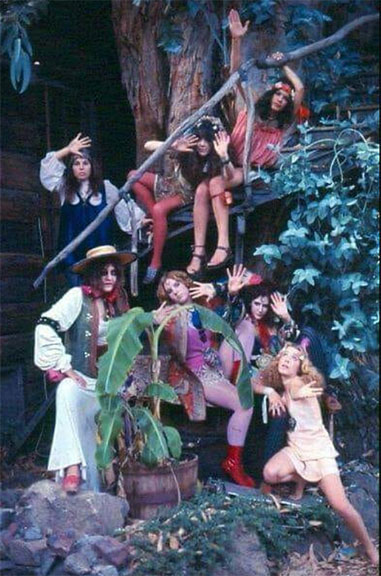
Have you been back to Laurel Canyon and Lookout Mountain since you lived there? Would you like to return again?
We returned in 2008. My husband and I had dinner with Gail in the Valley. She did not mention Frank once but wanted to talk about Bill Clinton whom she’d met at the White House after she’d donated to his campaign.
She showed me round the house which I did not recognize as they had made so many changes.
We visited the site of the log cabin which of course was a wild site, no sign of the house, and all the others mentioned in the book.
What are some of your favorite rock ‘n’ roll memoirs?
I don’t have any.
What are you working on now? How is the process different? Has your writing changed?
I am writing a novel set in the 2nd World War and finding it very difficult. I am 80% way through. I just want to get it finished!
Was there a wine cellar in the basement of the log cabin?
There was a vault and that may have been used as a wine cellar, but not in Frank’s time. The GTOs used it to write their songs. It had pine walls.
Did they call Frank Zappa’s home on the lot a “Tree House” back then?
No. It was called the log cabin. The tree house was simply the end part of the house above the kitchen and my office. It was Calvin’s apartment and was called the tree house because the enormous tree at the end of the house had a stair-case wrapped round it that led up to a balcony sticking out from the bedroom up there and you could step across from the metal staircase on to that balcony. But the real entrance to the ‘tree house’ was up wooden stairs outside the back door and they left up to the main door into that apartment that was called the ‘tree house’.
Did anyone ever mention architect Robert Byrd in connection with the log cabin? He allegedly built one of the structures on the property?
No.
How do you want people to remember Frank Zappa and Gail Zappa?
Not a question for me to answer.
Who are you favorite authors today? What are you reading currently?
I’ve listed those above. I also like ‘Flowers for Algernon’ and ‘Alone in Berlin’ but I can’t remember the author’s names. I’m currently reading everything about life during the second world war.
Talk about the letters you wrote to your mother back then. How long were they, how often did you write her, etc.?
Some of them were ten pages long or even longer, single spaced on American A4 size sheets. I wrote every week in the beginning, sometimes more often. As I became immersed in my life there and no longer an outsider but part of the team as it were, I wrote less and less. This is shown in the memoir which has 200 pages on the log cabin and 100 pages after we left.
Did you take any mementos with you when you left working for Frank Zappa?
I have a lock of Frank’s hair that Frank gave me when he was having his hair cut in the bathroom.
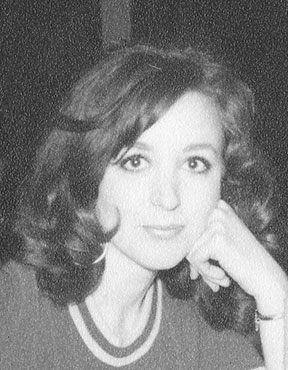
If Frank wasn’t married at the time, would you have been interested in having a serious relationship with him?
Yes. But I think I would have been swallowed up. I could not have coped with his womanizing. I have every admiration for Gail’s stamina to have withstood it all.
What is your life like now? What do you do for fun?
We have had a year of lockdown. My husband was an academic when I met him, but became a banker and adviser on gas/electricity/oil/nuclear power stations. We live a comfortable life. Our son lives in London and we have not seen him since Christmas because of Covid-19. We are soon to get our second jabs, so life should start to open up again. We socialise by inviting our friends here. I love the theatre and cinema but all that has been on hold.
Do you spend more time writing, or editing your work?
The two are interchangeable. They run together – write, edit, write, edit.
Any advice for anyone wishing to write a memoir?
Don’t try to write your whole life. Choose a section. Know the ending.
Try to make each chapter change in emotion – happy to sad, unknowing to knowing, anger to peace, and so on and vice versa.
Make each event cause the next event – the biggest difference apparently between those who get published and those who don’t. They just write random events. It doesn’t work.
What music do you listen to today?
BBC Radio 3. Classical
Do you have a timeline for the book you’re currently writing?
Yes, but I’ve already over-run it.
How much research is involved with your current project? Is it all online, do you spend time at the library as well?
Masses. My dining table is covered with books by people who lived through the war.
What is your favorite Zappa album?
I don’t have one. I have been promising myself since time began to make my own because I like some tracks from each album, but not all the tracks.
Was anyone living in the Houdini mansion across the street during your stay at the log cabin? Did you ever visit inside the home?
No.
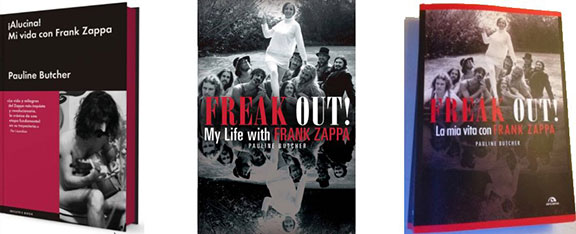
I love the ending of your book. Talk about what happened next, and what you did for the next five years.
I went to Cambridge university, studied economics and psychology. Met my husband. Moved to Scotland. Lived there for seven years where our son, Damian, was born. Lived in Norway, Australia and Singapore. We are now back in England.
Thank you for taking part in this interview.

